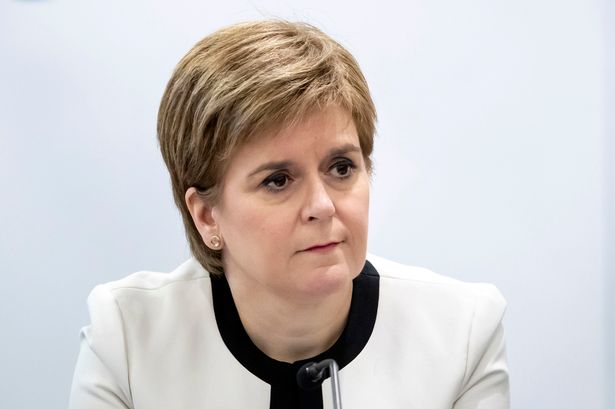Scotland’s budget deficit has fallen to a seven-year low but remains much larger as a share of the economy than the average deficit for Britain as a whole, official figures showed on Wednesday, figures that were seized on by opponents of Scottish independence.

Scottish public spending was 13.6% higher per head than the average for the United Kingdom, the biggest margin since records began in 1998-99. Revenue collected in Scotland was 2.6% lower per head than the UK average.
During Scotland’s 2015 independence campaign, the public debate included arguments about whether Scotland’s high public spending could be sustained. The country ultimately voted to remain part of the United Kingdom.
However, its pro-independence first minister, Nicola Sturgeon, has told British Prime Minister Boris Johnson that she wants to hold a second referendum because of Brexit.
Wednesday’s figures showed Scotland’s net fiscal balance, including revenues from North Sea oil in its territorial waters, dropped to 12.6 billion pounds, or 7.0% of gross domestic product in 2018/19, down from 8.1% in 2017/18.
This was the lowest since 2010/11, but exceeds the equivalent deficit for the United Kingdom as a whole, which stood at 1.1% of GDP, down from 2.0% in 2017/18. Across advanced economies, the average budget deficit was 2.1% in 2018.
Scotland – which accounts for about a tenth of Britain’s population and economic output – is now responsible for more than half of the United Kingdom’s total government borrowing in cash terms.
The Scottish government’s finance secretary, Derek Mackay, focussed on the reduction in borrowing.
“With a deficit that is falling at a faster rate than the rest of the UK, strong economic growth and a near record low unemployment, Scotland’s economic and public finances are strong,” he said.
Supporters of independence say Scotland’s economy would perform better if the country had greater control of fiscal and industrial policy, especially with the United Kingdom due to leave the European Union, a decision opposed by Scottish voters.
Scottish opponents of independence said the figures highlighted how Scots benefited from fiscal transfers from the rest of the United Kingdom.
“Today’s figures show Scots are nearly 2,000 pounds per year better off for Scotland being part of the United Kingdom,” said Ruth Davidson, leader of Scotland’s Conservatives.
The Fraser of Allander Institute, an economic research unit at the University of Strathclyde, said Scotland was not alone in running a large budget deficit, and that other academics had estimated Wales ran a deficit equivalent to 19.4% of GDP.
Official data showed that London, south-eastern England and eastern England were the only parts of the United Kingdom to run budget surpluses in 2017/18.
Kindly follow us on twitter:@AfricanVoice2










